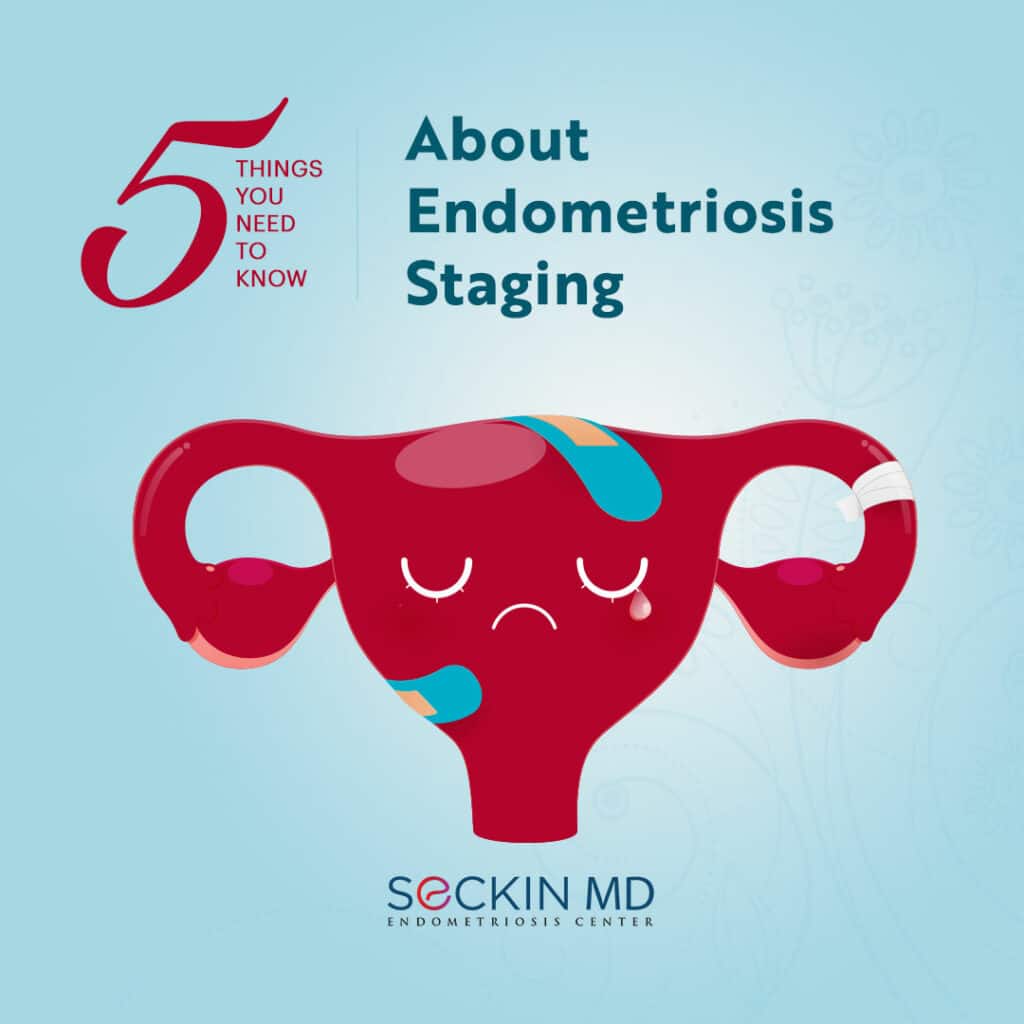5 Things You Need to Know About Endometriosis Staging

The severity of endometriosis symptoms and the rate at which the disease progresses vary among different people. So, a classification system for better prognosis and treatment is necessary. This is called endometriosis staging.
While there are several endometriosis staging systems in place, they do not always reflect the true nature of the disease or its symptoms. There is also no international consensus on which system should be universal.
Here are five things you need to know about endometriosis staging.
1. Twenty-two different endometriosis staging systems have been published since 1973
Between 1973 and 2021, researchers published 22 different endometriosis classification, staging, and reporting systems. However, not all of them are valid in clinical applications. This is because there is a lot of discrepancy between their intended and evaluated goals and a general lack of data validation.
2. The ASRM system is the most widely accepted staging system
The American Society for Reproductive Medicine (ASRM) or the revised ASRM (rASRM) score is one of the most widely accepted staging systems for endometriosis. The rASRM system includes four stages from Stage 1 (mild) to Stage 4 (severe). The ASRM classification is simple and relatively easy for patients to understand.
3. ASRM staging and symptom severity do not always match
ASRM staging may be easy to use, but it has many limitations. For instance, the system does not adequately describe deep infiltrating endometriosis (DIE) (most specialists may automatically call DIE stage IV for this reason). In addition, it is important to know that there is often no correlation between disease stage and symptom severity. For example, a patient with Stage 4 endometriosis may have no symptoms while someone with Stage 1 endometriosis may suffer debilitating pain.
4. Researchers also developed other endometriosis staging systems
To overcome the limitations of the rASRM staging system, researchers developed two other systems. The first is ENZIAN and the other is the Endometriosis Fertility Index (EFI).
ENZIAN complements the rASRM’s scoring by describing DIE. Initial versions of ENZIAN were difficult to use and the scores often overlapped with that of rASRM. But later researchers developed a revised ENZIAN (rENZIAN) system. This new system compartmentalized various lesions in the pelvis and graded them based on the extent of invasion. However, in ENZIAN there is a poor correlation between disease symptoms and infertility.
The aim of EFI was to determine the probability of pregnancy in endometriosis. EFI takes into account the patient’s medical history, previous pregnancies, the health of the fallopian tubes and ovaries, and other factors including the rASRM score. Given that there are only 2 out of 10 points in EFI for the stage of endometriosis, this system is not suitable for classifying the disease.
5. Dr. Seckin’s staging system differs from others
Dr. Seckin uses a descriptive classification method based on the type and location of endometriosis. Accordingly, he stages endometriosis as early peritoneal, ovarian endometrioma, cul-de-sac obliteration, DIE, and frozen pelvis.
Dr. Seckin’s staging system uses laparoscopy for a visual inspection of the pelvis and abdomen followed by a histological examination of the endometriosis lesion to get a more holistic understanding of disease progression. Only in this way can he remove all endometriosis lesions and reach the best therapeutic outcome.
Do you know what stage of endometriosis you have? Please share your experience with others by leaving a comment on our post on Facebook or Instagram if you wish.
Get a Second Opinion
Our endometriosis specialists are dedicated to providing patients with expert care. Whether you have been diagnosed or are looking to find a doctor, they are ready to help.Our office is located on 872 Fifth Avenue New York, NY 10065.
You may call us at (646) 960-3080 or have your case reviewed by clicking here.